
Увага! На сайті використовуються cookie файли.
The site uses cookie files
Даний сайт має вікове обмеження.
This site has age restrictions!
Я підтверджую, що мені, на жаль, давно виповнилося 18 років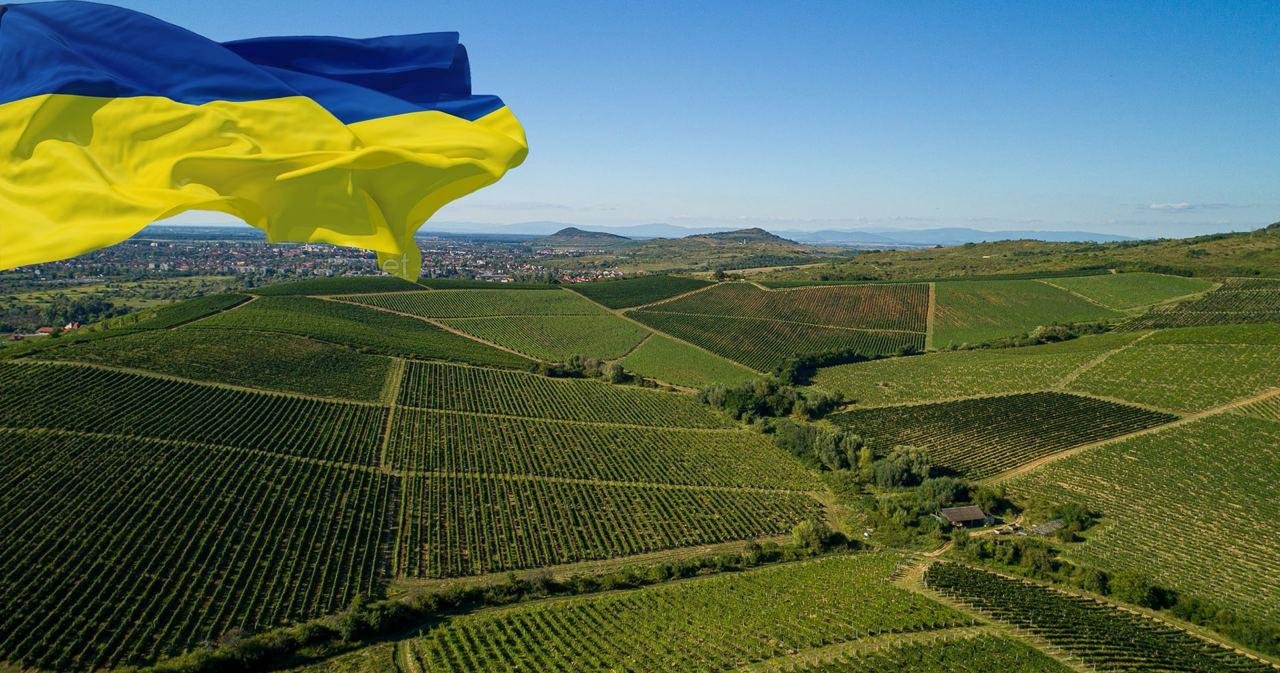
The 2024 grape harvesting and processing season is over. Winemakers worldwide are summarizing the outcomes, often with mixed feelings: in many regions, spring was too late, summer and early autumn too cold and rainy, or excessively hot and dry, affecting both the volume and quality of the vintage. What was the 2024 season like for Ukrainian winemaking, and how did climatic and other challenges impact it? Victoria Makarova spoke with winemakers and winery owners from various corners of Ukraine to piece the story together.
Hennadiy Vachilya, Director of Viticulture at Chateau Chizay, shares: “This season in Zakarpattia was both a challenge and a success. We experienced a warm but humid spring, leading to hazards of grape diseases. This was followed by an extremely hot summer, with temperatures reaching 40°C, and the start of autumn remained unusually warm, up to 35°C. As a result, most grape varieties achieved very high sugar levels, with other conditions, such as acidity, showing good results.”
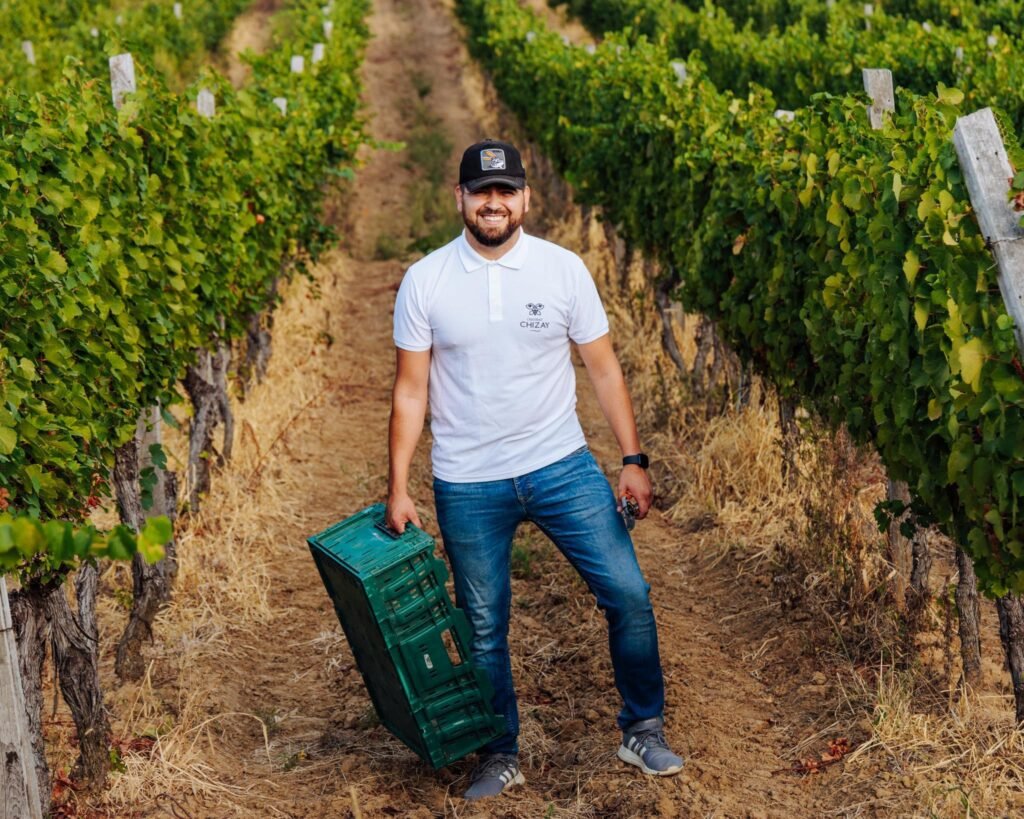
Due to the heat, viticultural procedures were carried out at night, starting after sunset and finishing by dawn. The harvesting began 2-3 weeks earlier than usual due to the accumulated heat. “The rapid vegetation growth required intense care and mobilization of all available resources,” explains Vachilya.
Despite the challenges, the season was exciting, and the harvest quality was excellent, with many varieties showing potential for long-ageing wines. Vachilya predicts 2024 could be considered a vintage year for high-quality wines.
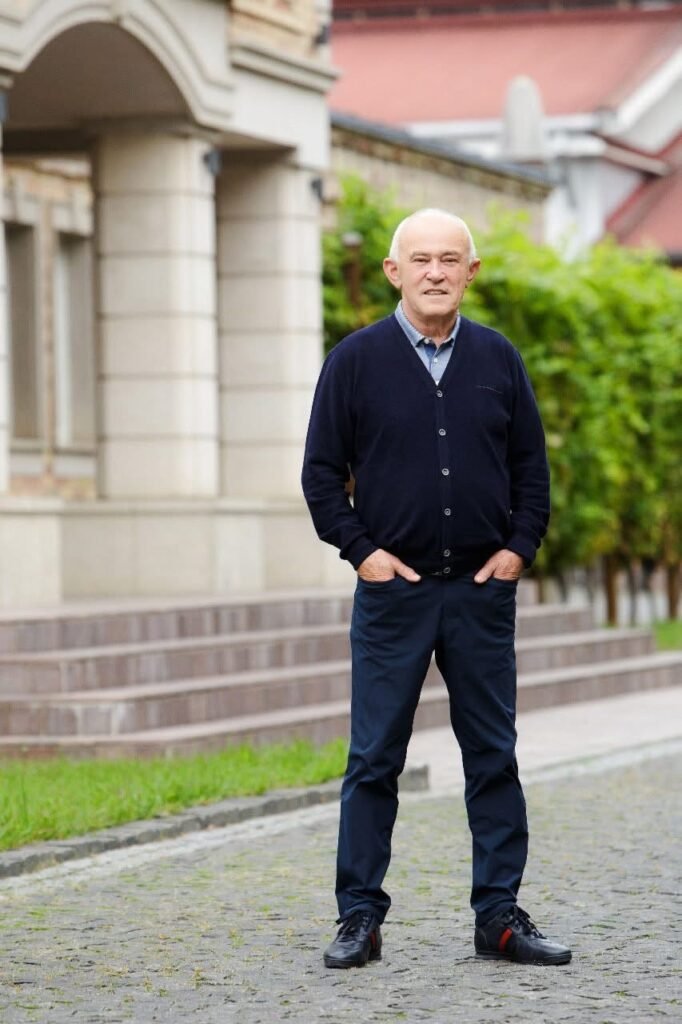
Gennadiy Gutman, founder and owner of Chateau Chizay, reported a significant reduction in harvest volume for 2024 compared to 2023: “This season, we collected almost 25% less yield by volume than last year (1,050 tons versus 1,421 tons in 2023). However, the grape quality is exceptionally high. The weather allowed the grapes to ripen very well, with sugar levels being among the highest in recent years. I believe this season can be compared to the very successful 2017 and 2018, when we produced wines that are now considered collectible.”
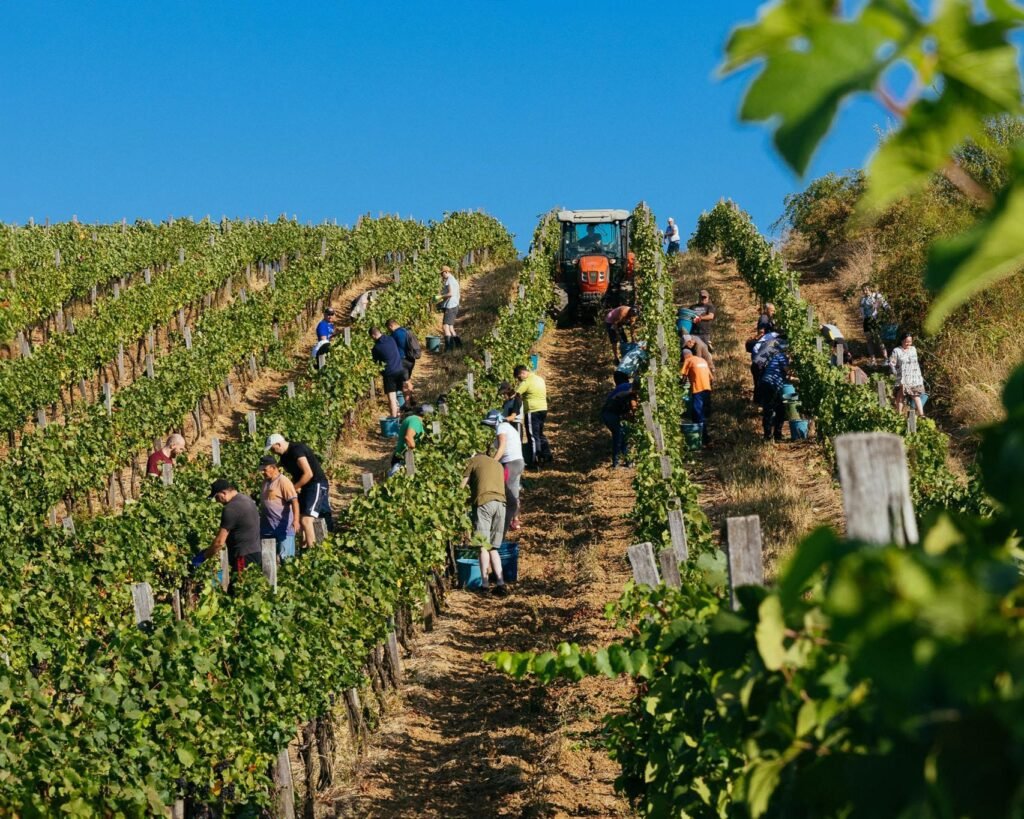
The hot summer and warm autumn significantly influenced the timing of the harvest but also positively impacted the quality of the grapes. “Czersegi and Blaufränkisch performed exceptionally well. We conducted an early harvesting for sparkling wines, and the conditions were excellent,” says Gennadiy Gutman. “For the first time, we also carried out an early harvest of Pinot Noir, and it’s very promising. We’re keeping our plans for this wine under wraps for now and are eagerly awaiting the results.” According to the owner of Chateau Chizay, this year Traminer Rosé performed exceptionally well, achieving a sugar level of 26%. The winery plans to use it for a new vintage of their signature dessert wine, “Trojanda Karpat.” Red varieties also showed great potential. “The 2024 Pinot Noir is simply stunning,” shares Hennadiy Gutman. “During the harvest, some of the berries were already sun-dried, promising exceptionally high-quality wine with aging potential.” For the Pinot Noir harvest, the winery’s entire office team joined in to assist the vinergrowers. The last variety harvested this season was Cabernet Sauvignon. Although rains delayed the process, particularly on the slopes of the Mala Hora area (where tractors couldn’t access the vineyards due to muddy conditions), the grapes were ultimately harvested at peak ripeness, showing excellent promise according to Gennadiy Gutman.
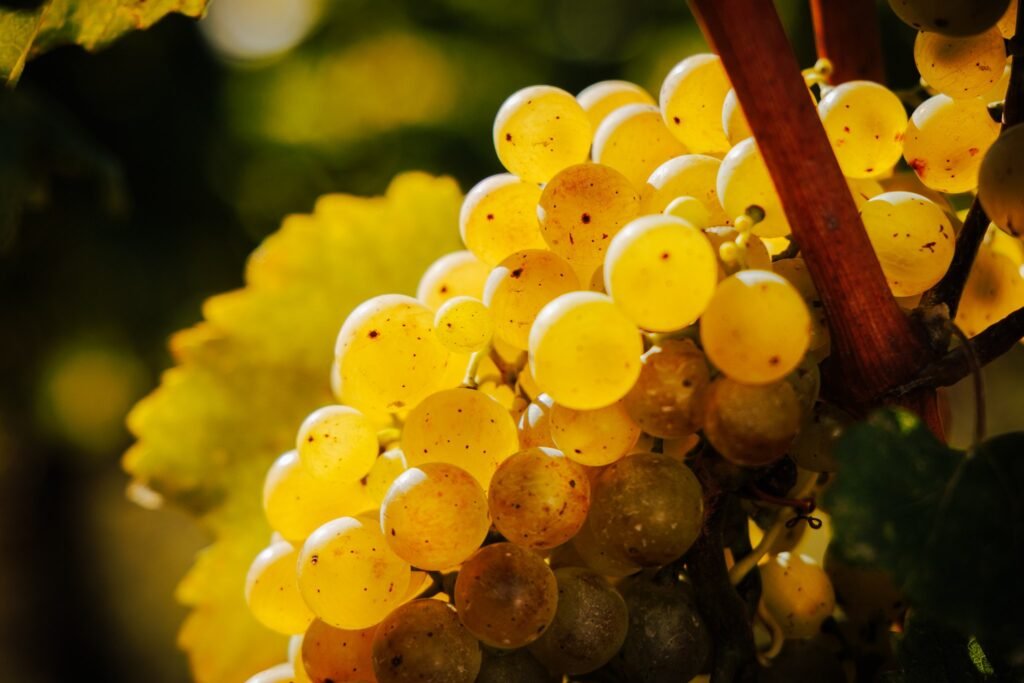
Beyond the climate-specific challenges of individual regions, there are broader issues affecting nearly all businesses in Ukraine, and winemaking is no exception. Among the most widespread challenges are the steep rise in costs for essential materials, such as fuel and vineyard care products, and a labor shortage. Despite these difficulties, Zakarpattia offers reasons for optimism.
“The season was a bit nerve-wracking, but the result was worth it. Quality Ukrainian wine from Zakarpattia is here to stay! Good things are ahead!” assures Gennadiy Gutman.
Photo: Serhiy Hudak for Chateau Chizay
Giorgi Iukuridze, co-founder of SHABO winery, shares that the 2024 season was challenging but very interesting.
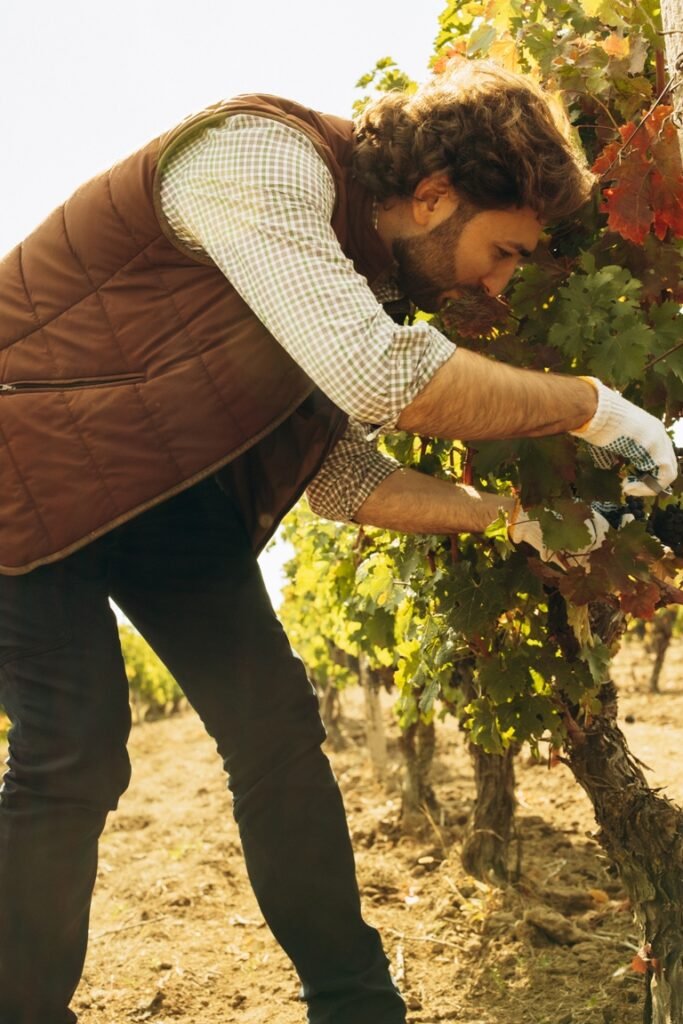
Throughout the winter and spring, until late May, there were continuous rains, but summer turned out to be exceptionally sunny and hot. As a result, the grape harvest began earlier than usual, with almost all grapes collected by September 10.
“We have definitely felt the impact of climate change over the past five years,” comments Giorgi. “In our terroir, many grape varieties have started ripening almost simultaneously. This has halved the duration of the harvest season, requiring us to work twice as intensively during the harvest.”
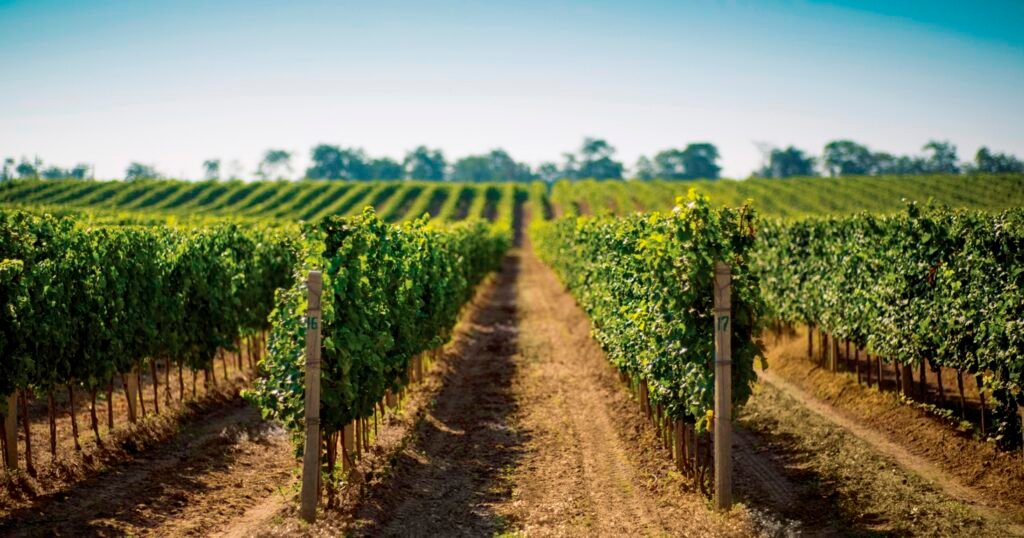
Considering the specific weather conditions this year, SHABO harvested 3,000 tons of grapes — significantly less than in 2023, when they gathered 4,800 tons. Despite the lower yield, the winery owners are pleased with the outcome.
“The 2024 vintage is of exceptionally high quality, and we hope this will be a ‘great’ year,” says Iukuridze. “By the way, 2022 and 2023 also gave us excellent, high-quality vintages. It seems God is on our side.”
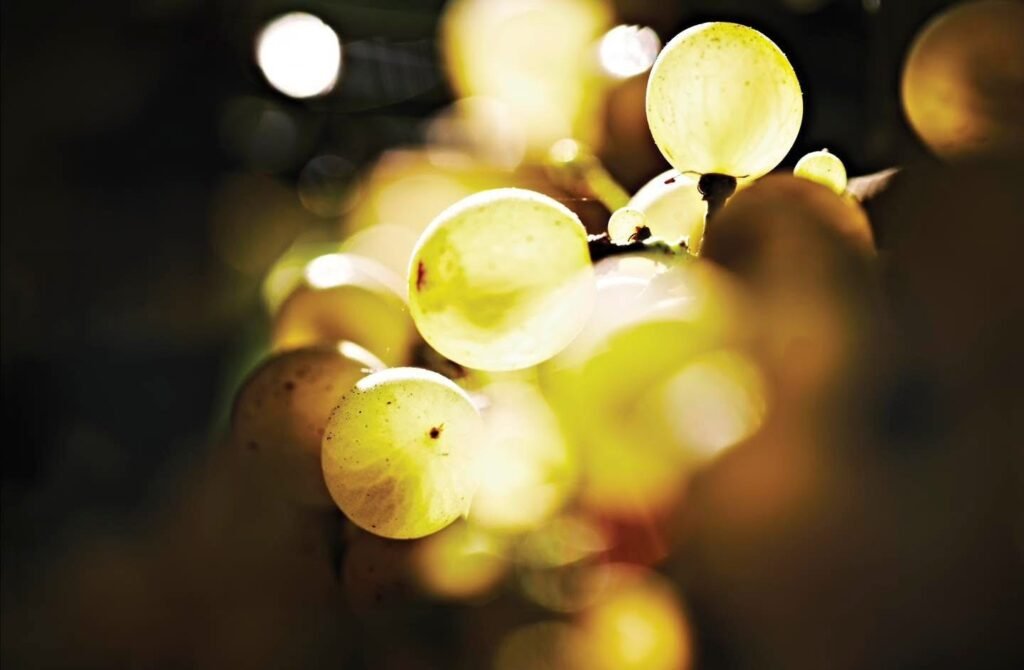
However, Giorgi Iukuridze sees the biggest challenge for SHABO not in climate change but in the shortage of labor and highly skilled specialists. According to him, this issue has been ongoing for several years and is not solely related to the war. Addressing this problem remains a key task for the winery’s owners moving forward.
Photo: SHABO winery
The 2024 season in this part of Odesa region was also challenging. “This year was extremely hot, and we started the harvesting almost 20 days earlier than planned — on August 12. Everything ripened almost simultaneously, and we had to prioritize our tasks. We picked the Pinot Gris just on time, with sugar levels already reaching their limits,” shares Kostyantyn Tintulov, co-owner of Villa Tinta winery.
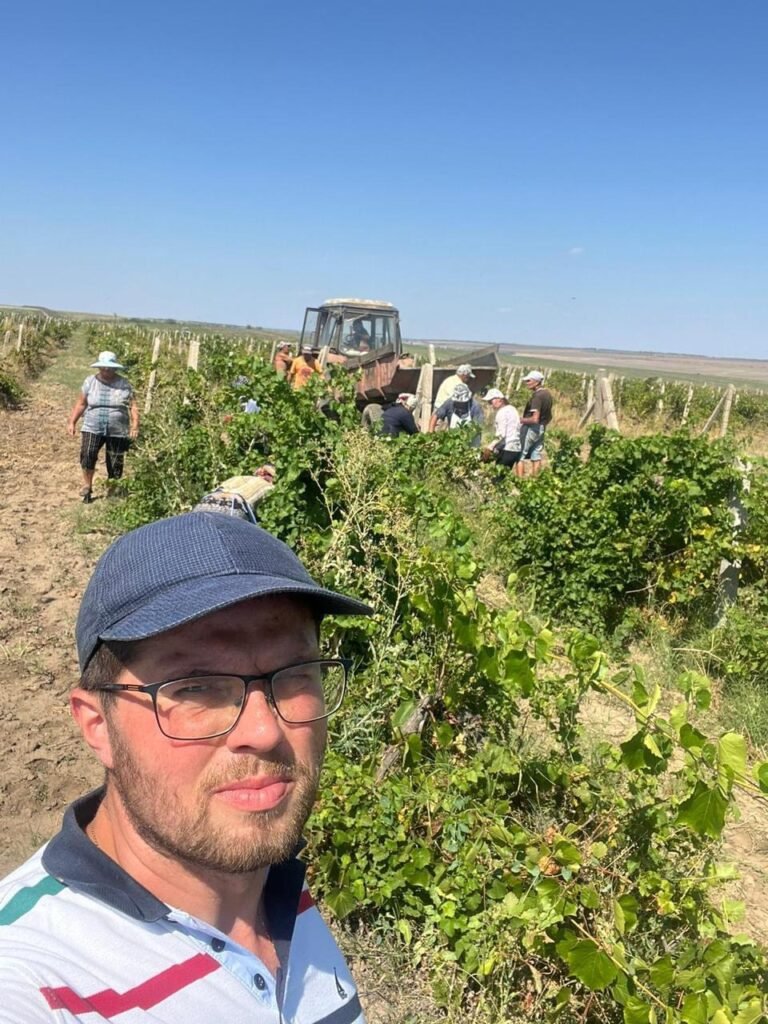
According to his estimates, this year’s harvest volume is nearly 1.5 times lower than last year. Combined with other challenges such as increased tax burdens and labor shortages, this will raise the production cost of wine. However, the quality of this vintage is significantly higher than in 2023, aligning with the general trend.
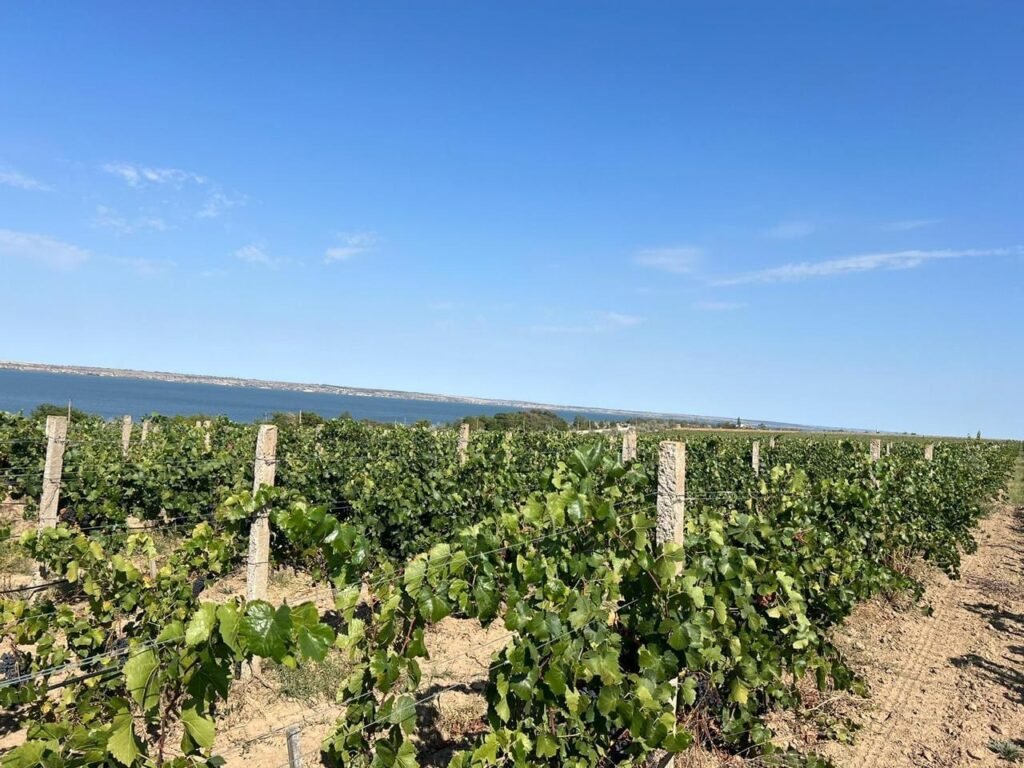
Additionally, Villa Tinta is undergoing certain technological changes. “We have engaged consultants to improve preservation and enhance the quality of our wines. For example, our 2024 vintage white wines now have better preservation due to the use of sur lie technology (aging wine on yeast lees remaining after fermentation). We aim to create more complex, sophisticated, and stable white wines this year, with an excellent structure while maintaining freshness and a strong reflection of the terroir,” Kostyantyn shares his expectations.
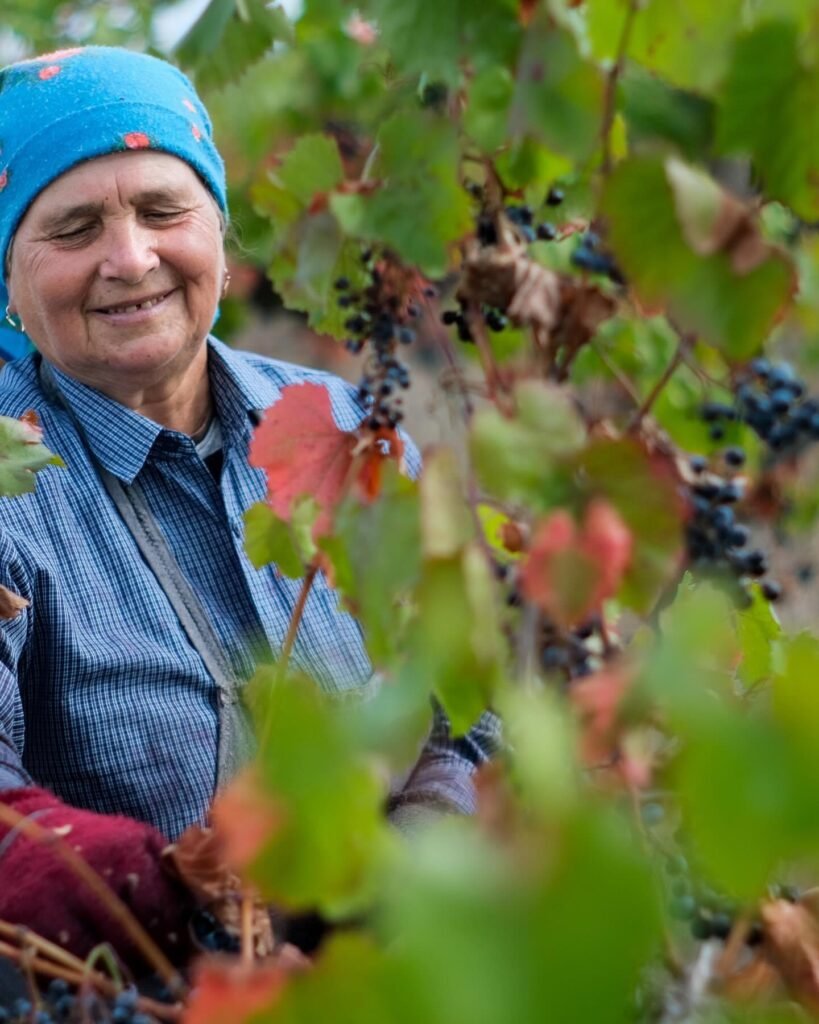
Villa Tinta is renowned for its Odesa Black – a flagship Ukrainian red variety, which is also well-known beyond Ukraine.
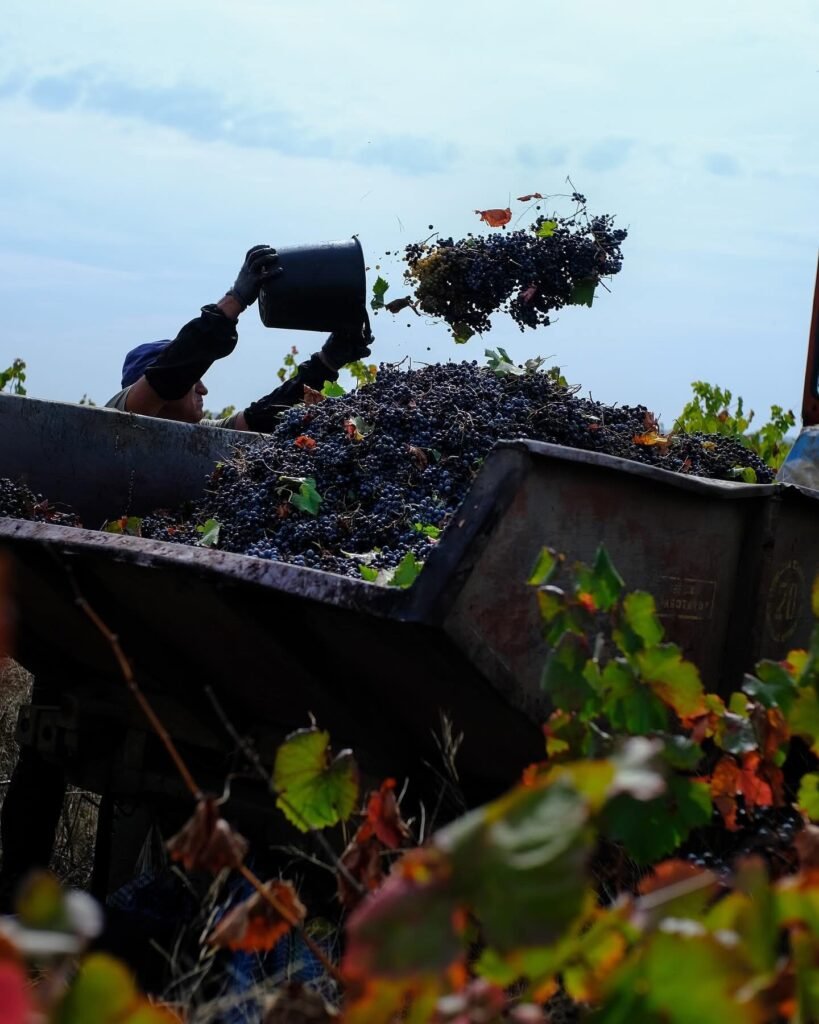
This year, the harvest of Odesa Black at Villa Tinta amounted to 120 tons – almost three times less than in 2023. As for the quality of this variety’s harvest, 2024 is considered a success: “The grapes were picked on time and in excellent condition – sugar, tannins, and acidity are in perfect balance. The alcohol level is expected to be slightly lower than usual – we’ll see what is happening after fermentation is complete,” summarizes Kostyantyn Tintulov.
Photo: Villa Tinta – Vinhol Oksamitne
Mykolaiv region, located in southern Ukraine on the Black Sea coast, experienced a challenging 2024 growing season due to unexpected spring frosts during the active vegetation period. These frosts caused significant damage, with many berries already formed on the clusters failing to survive. Svitlana Tsybak, CEO of Beykush Winery, noted that this year’s harvest is 15% smaller than in 2023 (when approximately 98 tons were harvested). The spring frosts had a more pronounced effect on red grape varieties than white ones, largely due to the location of the vineyards.
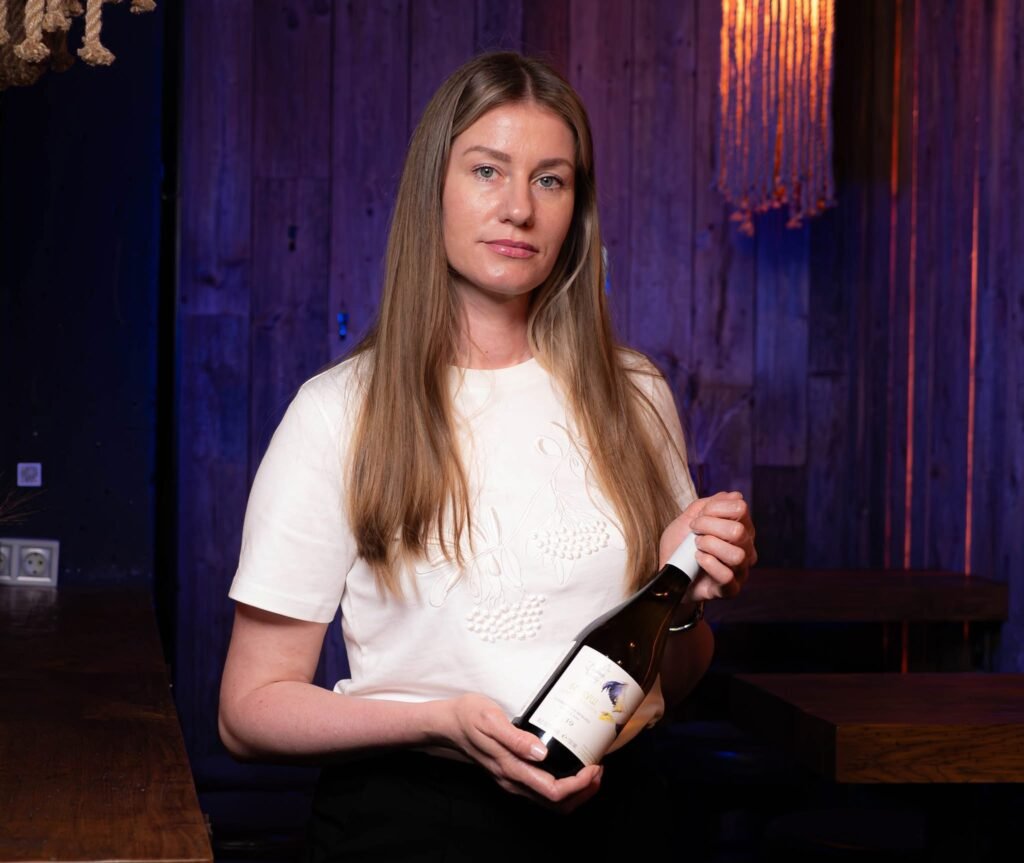
Yet the 2024 harvest in the Mykolaiv region has showcased exceptional quality, thanks to the very hot and sunny summer that allowed the grapes to ripen to ideal conditions. Svitlana observed that their wines, typically known for their high acidity, will have a slightly softer acidity this year, which she believes might appeal to consumers.
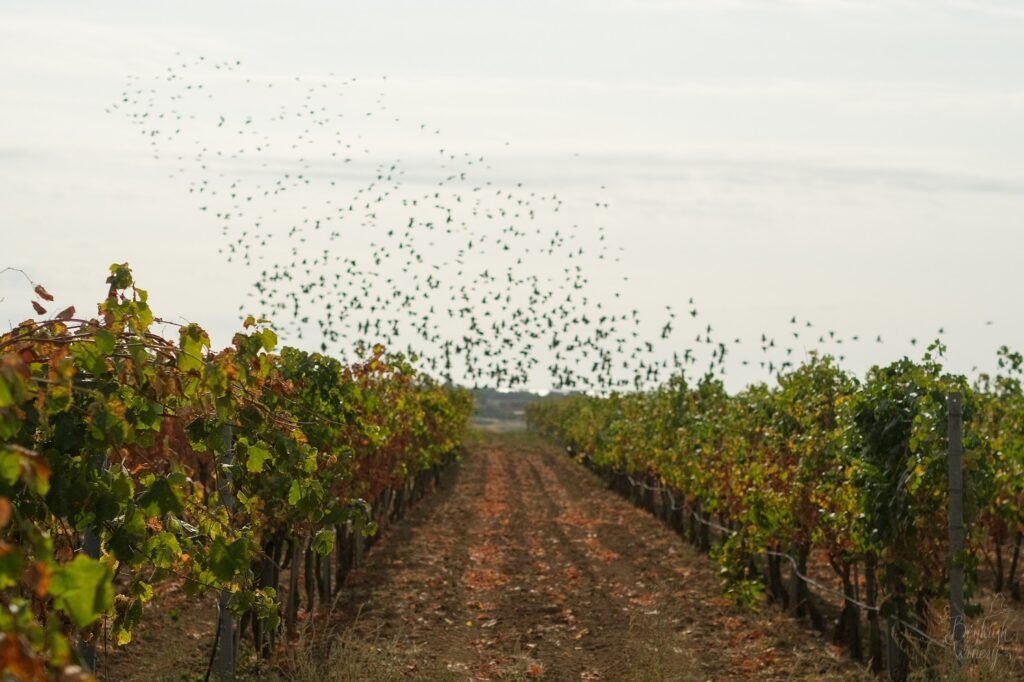
The harvest season, which typically lasts about two months — from late August to mid-October — was unusually short this year in the Mykolaiv region. At Beykush, all 17 grape varieties ripened almost simultaneously, allowing the entire harvest to be completed in just one month.
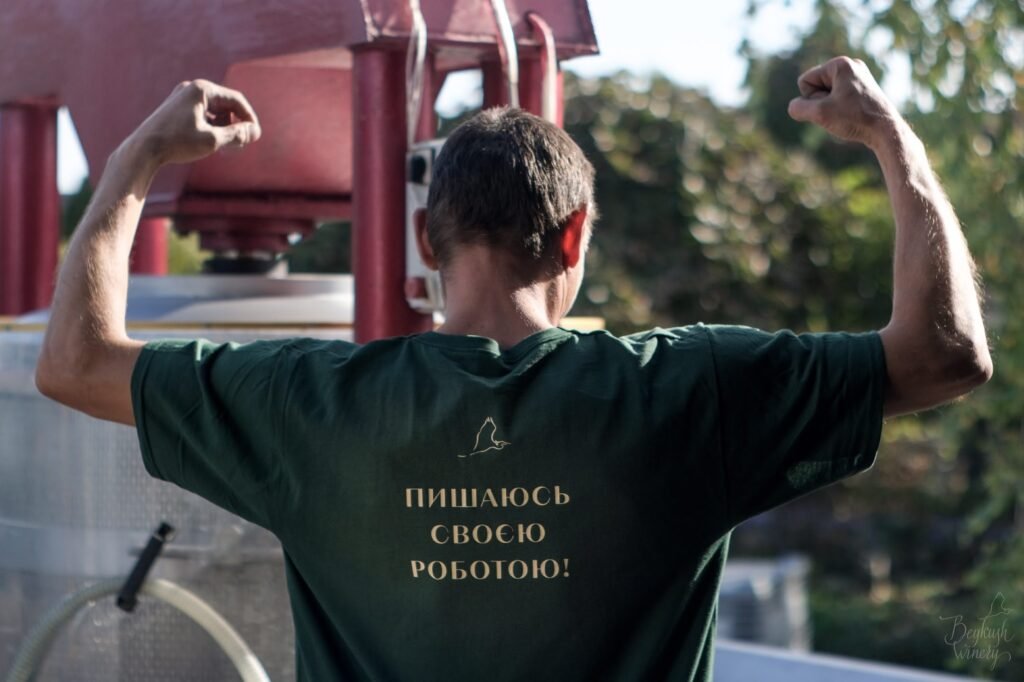
“Overall, I can say that despite all the challenges, we are satisfied with the quality of the 2024 vintage. Now it is up to our winemaking experts to make it work perfectly. We are expecting some very interesting blends from the 2024 vintage,” summarized Svitlana Tsybak, the director of Beykush Winery.
Photo: Arsen Fedosenko for Beykush Winery
“Ternopil region’s 2024 harvest was perfect!!!” This enthusiastic response, complete with three exclamation points, came from Oksana Buyachok, co-owner of the craft winery Father’s Wine, when asked about the season.
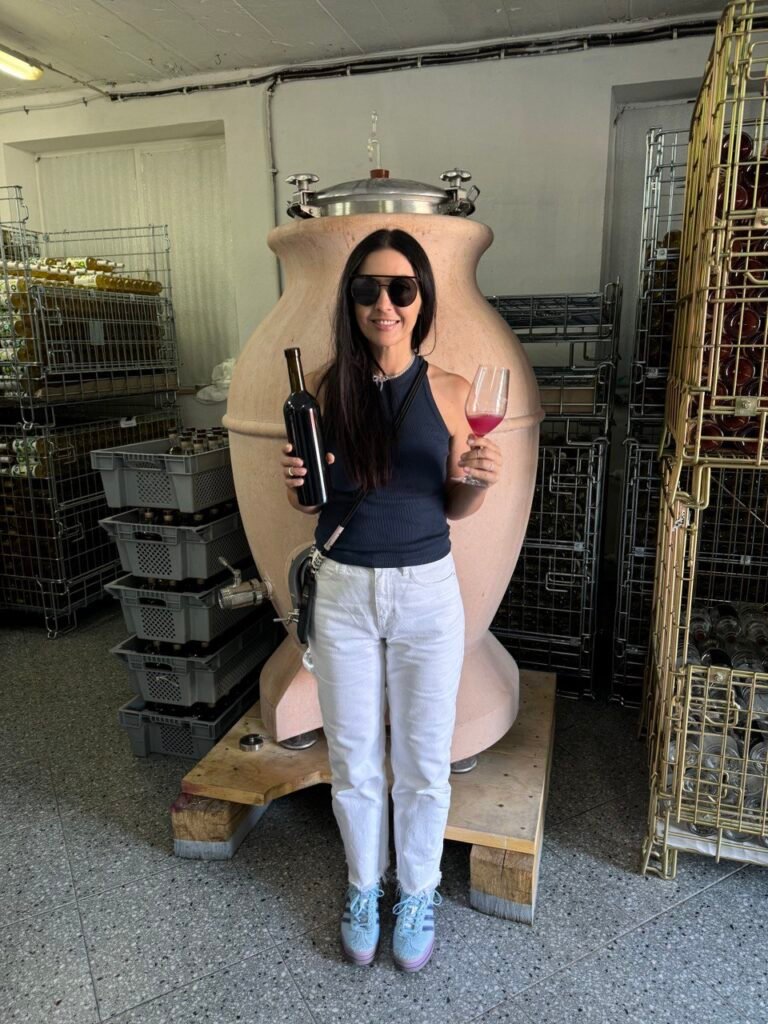
For the winemakers and vinegrowers of the region, this year was just as challenging and interesting as it was for the rest of Ukraine, characterized by intense summer heat and an unusually early harvest. For instance, in 2024 Father’s Wine began harvesting on August 26, much earlier than in previous years.“This summer was very hot for us, as well as for most of our colleagues, but we had better rainfall than they did in the south,” Oksana commented. “There were minor diseases in the vineyards, but we managed to overcome them. In the end, we achieved ideal conditions across all varieties and are expecting excellent wines from this vintage!”
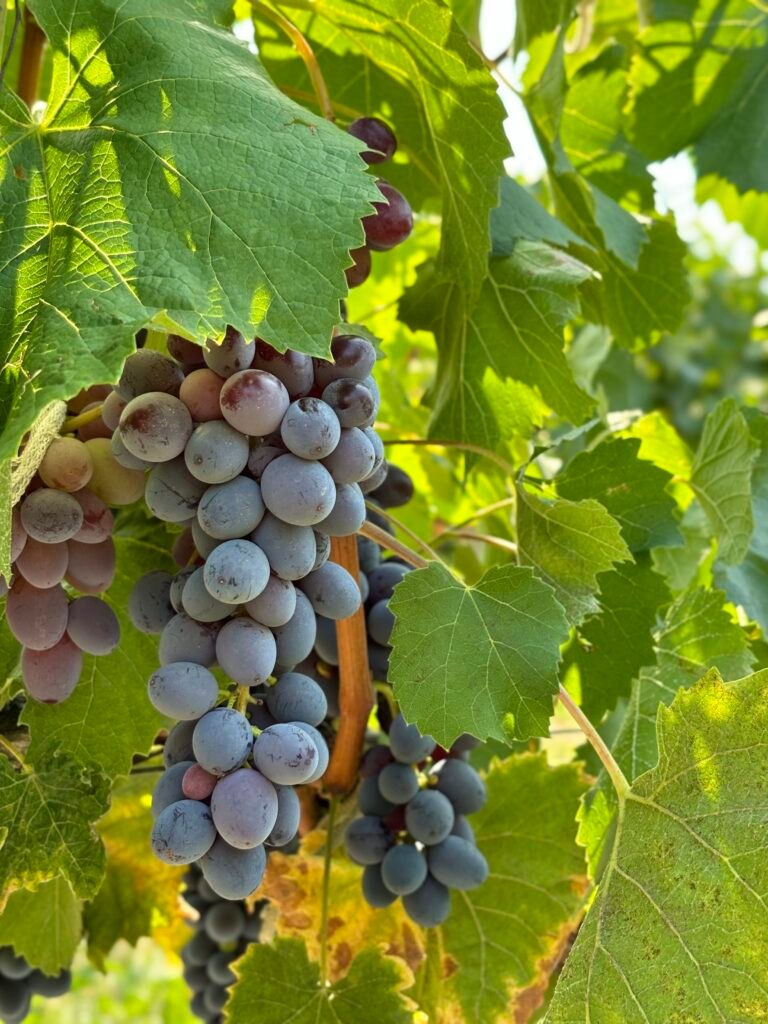
Regarding production volumes for 2024, Father’s Wine is maintaining the same levels as last year, with an estimated release of 55,000 bottles.
Photo: Father’s Wine
The craft winery Biologist operates vineyards near Kyiv, in the villages of Lisnyky and Bezradichy, as well as in Odesa region. According to co-owner and winemaker Ihor Petrenko, 2024 was a challenging year. “The main problem was the abnormal heat in July, which caused the harvest to start two weeks earlier than expected, leaving us unprepared,” Ihor explained. Another significant challenge was the simultaneous ripening of white and red grape varieties, particularly in Odesa region. In Ihor’s opinion, Odesa has become too hot for growing white grape varieties, which are unable to develop the desired acidity. As a result, Biologist may stop cultivating these varieties in the region in the future. Labor shortages, especially in southern Ukraine, further exacerbated the situation. The simultaneous ripening of white and red varieties meant they couldn’t harvest the Pinot Noir on time, leading to slight overripening.
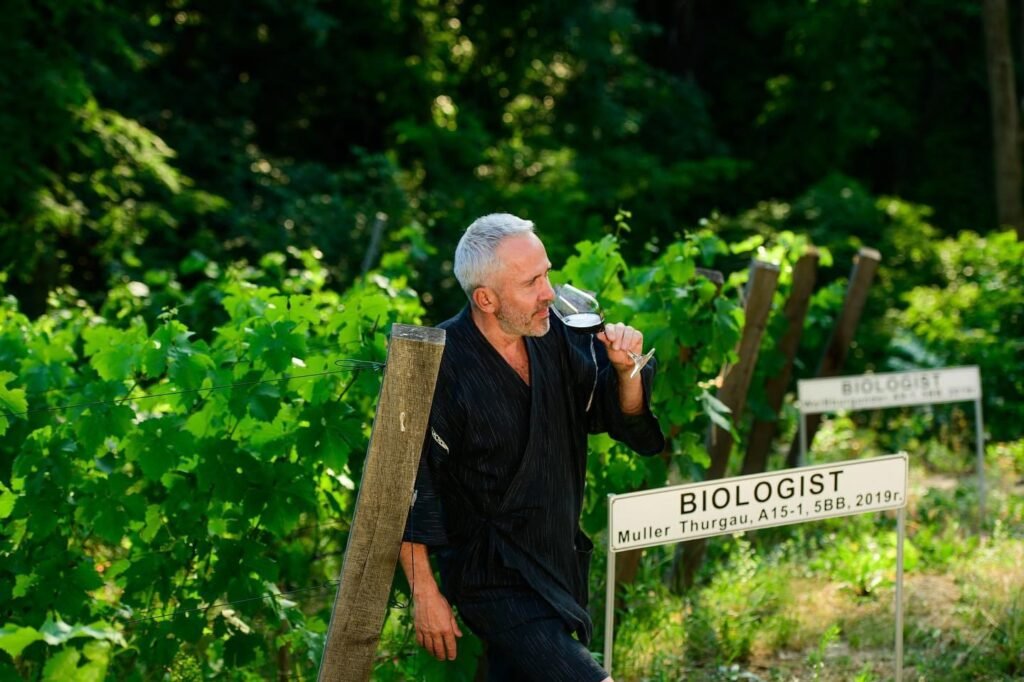
Unlike the challenges in Odesa, the vineyards near Kyiv are thriving. The owners of Biologist plan to continue expanding their “land bank,” planting about half a hectare of new vineyards annually. The planting density is rather high — approximately 10,000 vines per hectare — due to the growing cost of land in the Kyiv region. Both viticulture and grape harvesting are done manually.
This year, the Biologist team processed over 65 tons of grapes, an 80% increase compared to the previous year. Winemaker Ihor Petrenko noted that increasing wine production is a strategic priority for the winery, as they are actively expanding their export.
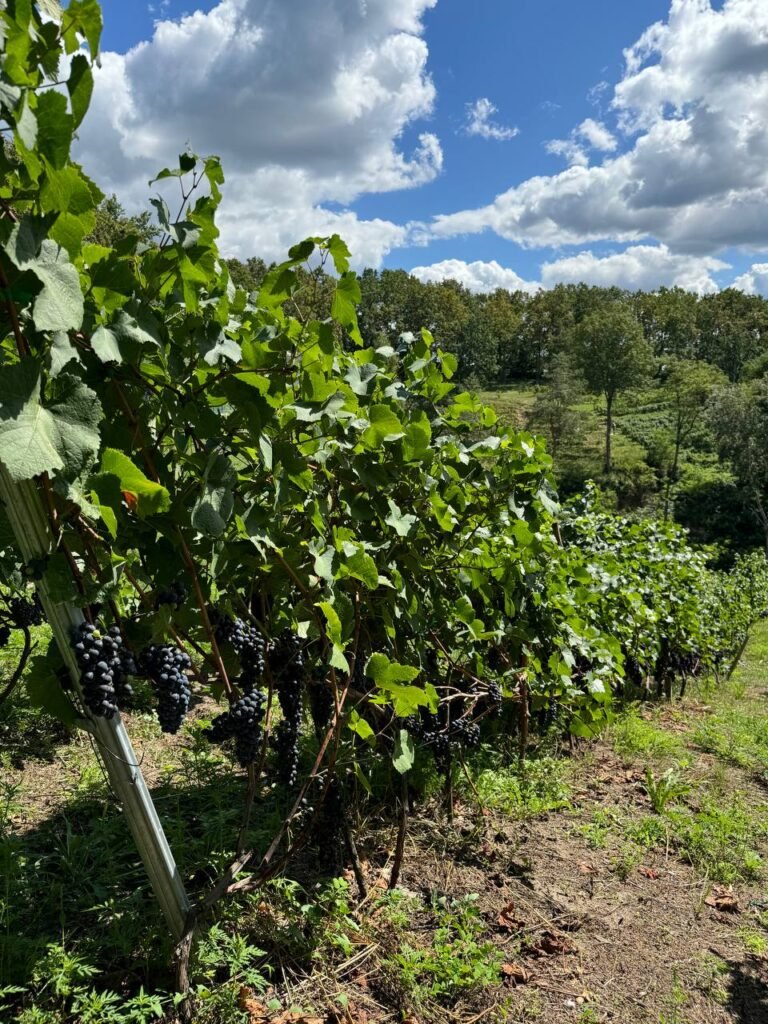
In conclusion, the best thing to say would be that the strength, talent, hard work, and remarkable resilience of Ukrainian winemakers are truly impressive. Where others might see setbacks and challenges, Ukrainian vintners find new opportunities. Giving up or surrendering to difficulties is simply not an option for them. We are incredibly proud of them — passionate artists of wine who continue to revive and create winemaking traditions, shaping and developing Ukraine’s wine culture, and writing its modern wine history.
Photo: Biologist
⇒ Join our social networks ⇒ Optimistic D+ editors will take this as a compliment.
⇒ Every like is taken as a toast!
08.02.2026
27.01.2026